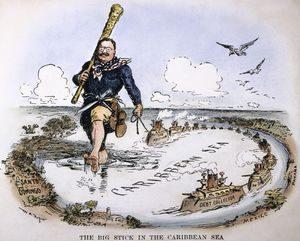Transforming U.S. Political Interventionism: The Trump Era and Its Global Implications
The tenure of Donald Trump as President introduced a distinctive phase in American foreign policy, marked by a departure from traditional multilateralism toward a more self-focused and transactional approach. This period witnessed a redefinition of the United States’ engagement with the world, emphasizing national interests and recalibrating diplomatic ties. Drawing on insights from the Carnegie Endowment for International Peace, this article delves into the evolution of U.S. interventionism under Trump, its effects on international alliances, institutions, and the broader geopolitical environment, as well as prospects for future American diplomacy.
Reimagining Global Partnerships: The Trump Administration’s Impact on Alliances and Diplomacy
Under Trump‚Äôs leadership, U.S. foreign policy pivoted sharply toward an ‚ÄúAmerica First‚ÄĚ doctrine, which prioritized direct national benefits over collective global commitments. This shift challenged the foundations of long-standing alliances such as NATO and the G7, while also reshaping interactions with major powers including China and Russia. The administration‚Äôs preference for unilateral measures‚ÄĒranging from imposing tariffs to leveraging sanctions‚ÄĒaltered the dynamics of international cooperation and raised questions about the reliability of the U.S. as a global partner.
Key international consequences included:
- Pressure on Multilateral Frameworks: The U.S. scaled back its involvement in organizations like the World Health Organization and withdrew from agreements such as the Paris Climate Accord, sparking concerns about the future of global governance.
- Alliance Tensions: Calls for increased defense spending and equitable burden-sharing led to friction with traditional allies, prompting debates over the sustainability of collective security arrangements.
- Selective Diplomatic Engagements: Notable diplomatic breakthroughs, such as the facilitation of inter-Korean talks, demonstrated a targeted but impactful use of American influence.
| Alliance/Relationship | Trump-Era Policy Shift | Resulting Diplomatic Effect |
|---|---|---|
| NATO | Demanded higher defense contributions from members | Short-term strain but eventual reinforcement of commitments |
| G7 | Public disagreements and reduced U.S. engagement | Erosion of coalition unity and trust |
| U.S.-China Relations | Trade conflicts and technology export restrictions | Heightened geopolitical rivalry and economic decoupling trends |
Evaluating the Effects on Global Institutions and International Norms
The Trump administration’s assertive and often unilateral foreign policy stance significantly influenced the operational dynamics of international organizations. By prioritizing transactional diplomacy over multilateral consensus, the U.S. diminished its traditional leadership role, creating openings for other global actors to assert influence and challenge established norms. This recalibration forced many institutions to adapt in order to maintain their relevance and effectiveness amid shifting geopolitical realities.
Notable outcomes included:
- Decline in Multilateral Cooperation: U.S. skepticism toward global agreements hindered collective efforts on critical issues such as climate change, global health, and trade regulation.
- Ambiguity in Upholding International Law: Selective compliance with treaties and norms introduced uncertainty about the binding nature of international rules.
- Institutional Adaptation: Organizations sought alternative funding sources and forged new coalitions to compensate for reduced American support.
| Institution | Impact | Institutional Response |
|---|---|---|
| United Nations | Cutbacks in U.S. funding and peacekeeping contributions | Diversification of funding and strengthening regional alliances |
| World Trade Organization | Obstruction of appellate body appointments, delaying dispute resolution | Negotiations among members for interim dispute mechanisms |
| Paris Climate Agreement | U.S. withdrawal undermined global climate cooperation | Increased leadership roles by the European Union and China |
Key Foreign Policy Realignments During the Trump Presidency
The Trump administration’s foreign policy was marked by a decisive move away from multilateralism toward a focus on bilateral deals and nationalistic economic policies. This approach emphasized immediate gains for the U.S., often at the expense of broader international collaboration. The administration’s strategic priorities included:
- Reassessing Security Partnerships: Demanding greater financial contributions from NATO allies, challenging the traditional collective defense model.
- Economic Protectionism: Implementing tariffs and renegotiating trade agreements like the United States-Mexico-Canada Agreement (USMCA) to safeguard American industries.
- Selective Global Engagement: Exiting major accords such as the Iran Nuclear Deal and the Paris Climate Accord, signaling a retreat from certain international commitments.
| Policy Area | Before Trump | During Trump |
|---|---|---|
| Multilateral Engagement | Strong commitment | Significant reduction |
| Trade Policy | Global cooperation | Focus on economic nationalism |
| Alliance Support | Emphasis on collective defense | Demand for increased burden-sharing |
This recalibration elicited mixed reactions globally. While some allies viewed the approach as unpredictable and destabilizing, adversaries adjusted their strategies to exploit perceived gaps in U.S. leadership. The administration’s pragmatic, interest-driven diplomacy reshaped international relations, influencing trade policies and conflict management. This period underscored the tension between short-term political objectives and enduring strategic stability, fueling ongoing debates about the legacy of Trump-era interventionism.
Pathways to Reinvigorate Multilateralism and Global Trust
To restore America’s influence and credibility on the world stage, a renewed commitment to multilateralism and transparent diplomacy is essential. Rebuilding trust with allies and international institutions requires consistent engagement, respect for shared norms, and policies that balance national interests with global responsibilities. Effective strategies include:
- Rejoining and actively supporting the United Nations to strengthen global security and humanitarian efforts.
- Renewing participation in trade agreements that promote equitable and mutually beneficial economic relations.
- Collaborating with international health organizations to enhance pandemic preparedness and response.
Moreover, establishing bipartisan frameworks for foreign policy can help insulate international commitments from domestic political fluctuations. Regular evaluations of U.S. multilateral involvement will foster accountability and ensure sustained engagement.
| Recommendation | Expected Benefit | Implementation Timeline |
|---|---|---|
| Institutionalize Diplomatic Consultations | Enhanced trust and cooperation | 6 to 12 months |
| Rejoin Key Global Agreements | Improved international credibility | 3 to 6 months |
| Create Bipartisan Foreign Policy Council | Policy stability and continuity | 12 to 18 months |
Looking Ahead: The Legacy and Future of U.S. Interventionism
In conclusion, the Trump administration’s foreign policy marked a significant shift toward unilateralism and transactional diplomacy, challenging established norms and reshaping America’s global role. As highlighted by the Carnegie Endowment for International Peace, these changes have compelled both allies and rivals to adjust their strategies in response to a more unpredictable U.S. posture. Understanding this legacy is vital for policymakers seeking to navigate the complexities of contemporary international relations and to craft a foreign policy that balances national interests with global leadership in the years to come.







